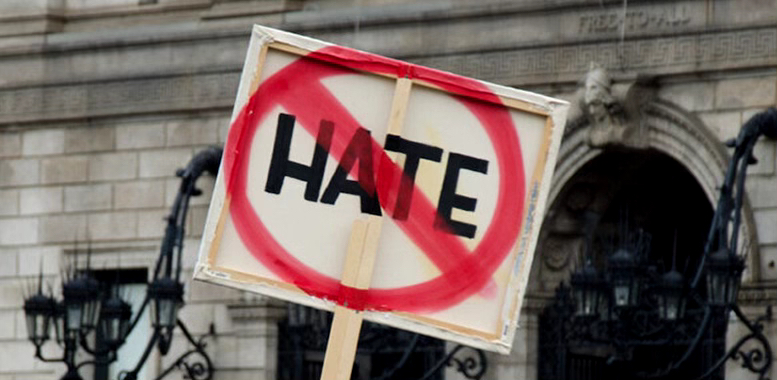With election results fresh and wars ongoing, people all over the world tend to use dehumanization, the practice of attacking someone’s humanity to alienate the individual, to divide society into pieces. How, as a society, are we to progress when we refuse to see one another as human? The only use of the ugly practice is destruction, not just of the receiver, but of the sender as well.
In World War II, dehumanization was the core of the global conflicts. It all started when German Chancellor Adolf Hitler began blaming the issues of German society on Jewish individuals. He even went as far as defining a stereotype for what a Jewish individual looks like, separating them from the rest of humanity. As time went on, he turned to using dehumanization to justify the Holocaust.
Unfortunately, Hitler’s acts of dehumanization weren’t the only ones seen in World War II. To justify the back and forth killing that occurs in war, every other country involved in the global conflict had to generalize the enemy’s population, identifying ALL as a threat. There were plenty of Germans who were against Hitler’s views on Jewish individuals, who even went as far as sheltering them from the Holocaust. But allied forces had to view all Germans as “the enemy” in order to justify the mass bombings that occurred. World War II is the ugliest part of our past, as all sides stripped away the humanity of society.
However, dehumanization did not end after World War II. In fact, it’s still an issue in today’s society. Take, for example, the United States election. Back and forth, opposing beliefs clash constantly. Individuals with differing beliefs start to see each other as those beliefs, instead of as humans.
“When people find out about my beliefs, they’re like, ‘oh, well, people like you treat other people poorly, so you must treat other people poorly,’” senior Sophie Westburg said. “Essentially, they’re saying, ‘you are your beliefs and no more than that,’ and so it’s easy for them to just look at those beliefs instead of me as a whole person.”
This election, countless peers have stripped away the humanity of others while having their own diminished. This election, more people have called for the disenfranchisement of those with differing beliefs than ever before. This election, the practice of dehumanization has eaten away at our democracy, serving as the recipe for divide, distrust, and destruction. It is an ugly thing, the way we treat others who are different.
For progress, we must put the people before the politics. We must love one another and disagree respectfully. We must fight for a future that serves humanity, not beliefs. We must coexist, peacefully. As Heather Roberts of Cornell College says in “Dehumanization: An American ingredient examined,” “If we reevaluate our relationship to violence and power, we can dream of a newer and inclusive society.”
In order to live in harmony, dehumanization must stop. It is okay to factor someone’s beliefs into an opinion of them, but it is never okay to only see them for their beliefs. The world isn’t black and white, nor will it ever be.
“We’re all human beings,” Westburg said. “We all have to be kind and loving towards each other, even if we don’t agree with each other’s ideas.”
Exist with peace and exist with humanity, for the future depends on it.



